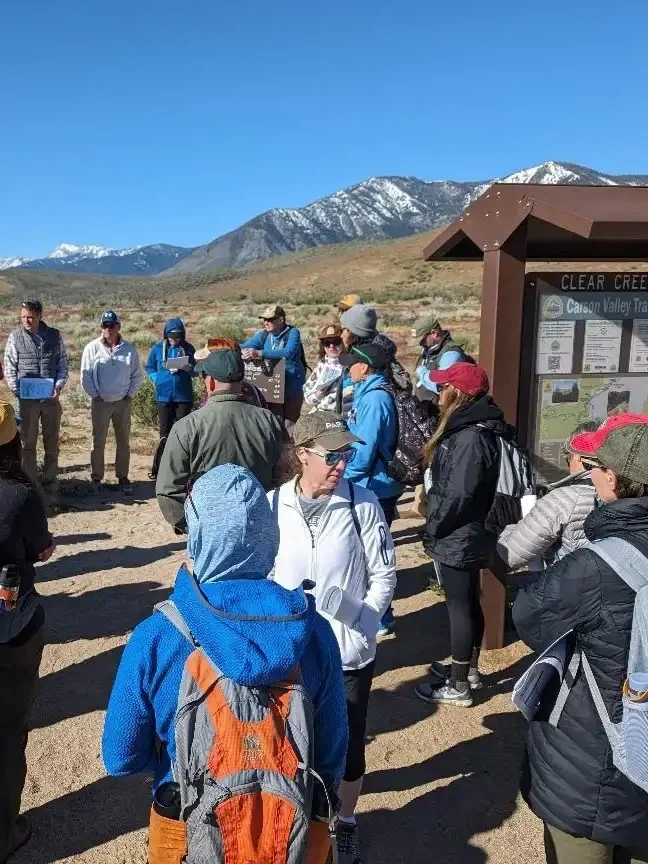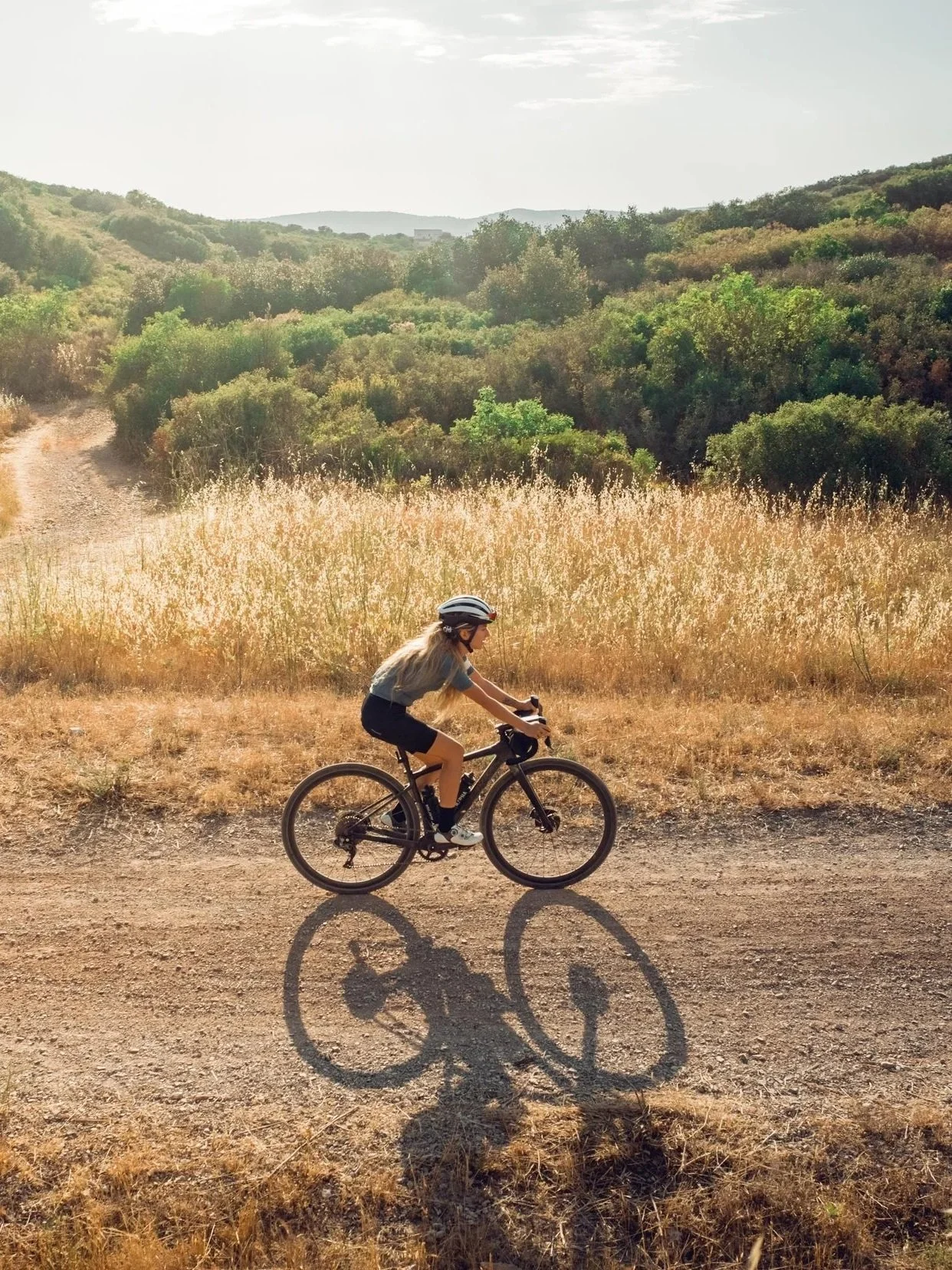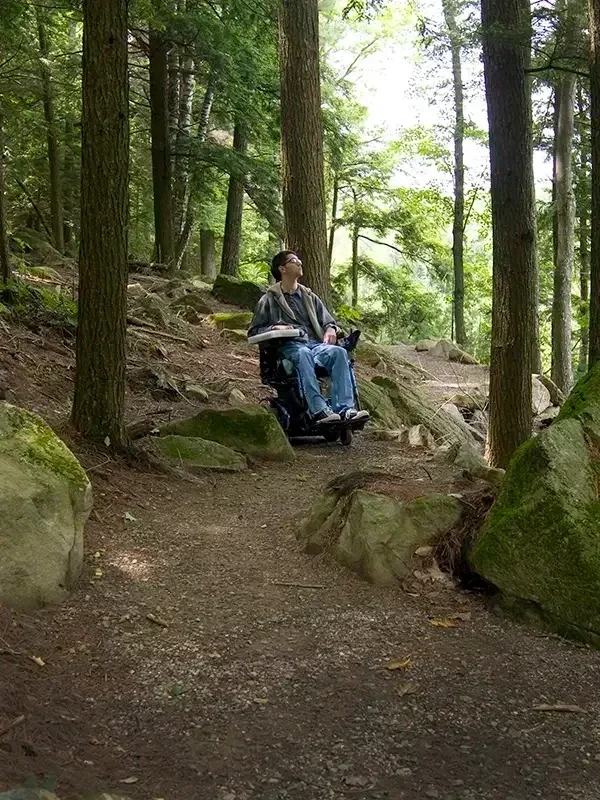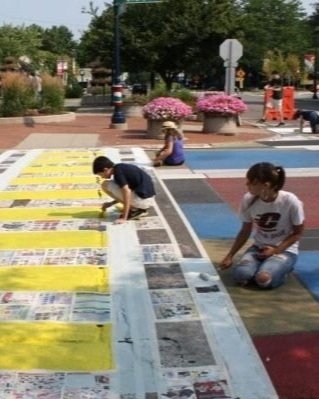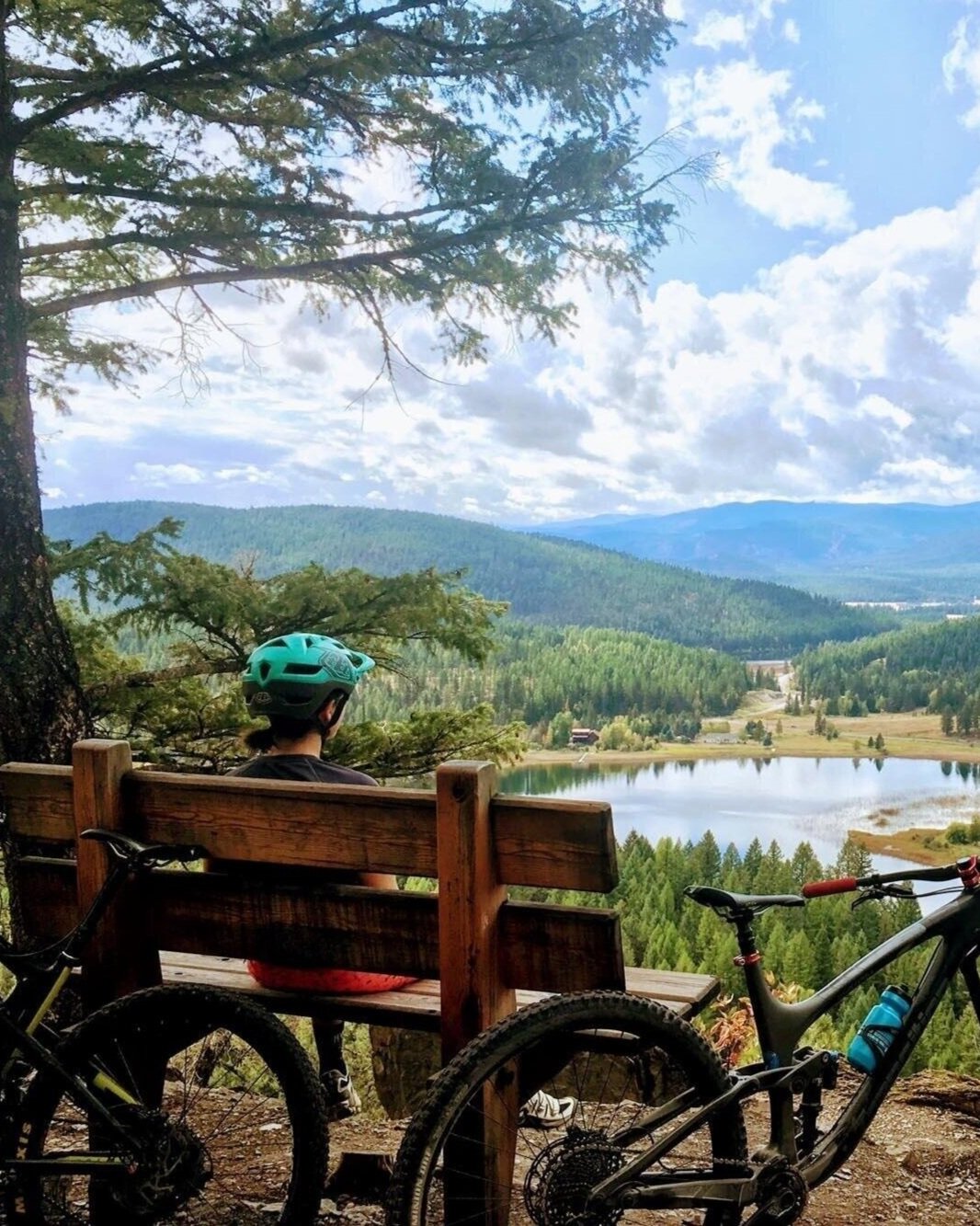New Timeline Institute Online Courses
The Institute’s online courses are designed for people working to strengthen rural places and outdoor recreation economies. We offer practical, tested tools—grounded in decades of experience with trail towns, small communities, and collaborative partnerships—that help you plan, engage, measure, and communicate more effectively. Each course is hands-on, flexible, and built to help you apply what you learn directly to your own projects.
We are confident that you, your organization and your community will benefit from your investment. While we cannot return your time, we offer a 30-day money-back guarantee on every course.
Three ways to access these courses
1. Scheduled courses live via Zoom • just $300 through Dec. 31
Scheduled weekly sessions + resources + post-course coaching
All sessions recorded in case you need to miss a session or want to review later.
Scroll down to see the Winter/Spring 2026 course schedule and a sneak preview of what’s ahead for Fall 2026
2. On-Demand • just $250 through Dec. 31
If the course you want isn’t on the current live schedule, or the timing doesn’t fit, many are available on-demand, so you can learn anytime, anywhere, with support from the instructor along the way.
What’s included?
Access to all recorded sessions and resources from a previous offering of the course.
Email questions and clarifications with the course instructor while you’re reviewing the recordings.
A 15-minute pre-course meeting and a 45-minute post-course virtual coaching session with the course instructor to help you apply what you learned to your own situation.
If the course qualifies for free professional learning credits, taking the course on-demand will also qualify for credits.
Take the course at your own pace. We’ll be here to support you along the way.
Scroll down to see a list of available on-demand courses.
3. Package discounts
Harbinger's new packages offer significant discounts for taking multiple courses throughout 2026.
Three Course Special — Any three live or on-demand courses — $895 • Just $695 through Dec. 31
All-Access Pass — Full access to all of Harbinger's live via Zoom and on-demand courses for all of 2026 — $1,595 • Just $1,195 through Dec. 31
After you register, you'll receive emailed instructions for registering for your chosen courses — or accessing the entire catalog.
Free Continuing Education Learning Credits
Through a partnership with American Trails, Harbinger offers free learning credits for selected courses. Credits are available by request, at no charge beyond the course registration fee, contingent on completing the entire course and a brief post-course quiz. American Trails is a certified provider, making it possible for Harbinger to offer credits for:
American Institute of Certified Planners Continuing Maintenance (AICP CM)
Landscape Architecture Continuing Education System (LA CES PDH)
National Recreation and Park Association (NRPA CEU)
CEU/PDH equivalency petition for other accepting organizations
Credits are available by request, and are contingent on completing the entire course and a brief post-course quiz.
Cohorts, Custom Courses and Workshops
We offer custom courses and workshop versions of our courses for organizations, communities and conferences, and arrange special pricing and group coaching for cohorts of five or more in our public courses. Inquire for more information or to make arrangements for your group.
Pay What You Can
If you're trying to do a lot of good with very little budget and the course fees seem out of reach, please reach out so we can work something out. If you could use a hand up, for whatever reason, we're happy to offer one.
Good words from course participants and partners
2026 Course Calendar
Year-End Discounts ALL courses Just $300 through Dec. 31.
Most courses available “On-demand” if the Live dates & times don’t work for you or for courses not currently scheduled. on-demand courses discounted to $250 through Dec. 31.
WINTER/SPRing Schedule
Do-It-Yourself Visitor Research for Parks, Trails, Heritage Sites and the Towns that Serve Them Thursdays, Feb. 19-March 5, 2026. Three 90-minute sessions. [Learning credits available]
Facilitator Training for Collaboration & Consensus Wednesdays, Feb. 11-25, 2026. Three 90-minute sessions. [Learning credits available]
Bicycle Tourism Blueprint: A Community-Led Approach to Attracting Cyclists, Boosting Businesses, and Creating a Bicycle-Friendly Destination Wednesdays, March 4-25, 2026. Four 90-minute sessions. [Learning credits available]
Building Access from the Ground Up: A Roadmap for Outdoor Recreation Communities Tuesdays, March 10-31, 2026. Four 90-minute sessions. Early registration discount through Dec. 31, 2025. [Learning credits available]
Mapping What Matters: Ripple Effects Mapping for Communities and the Organizations That Support Them Wednesdays, March 18, April 1 & 15, 2026. Three 2-hour sessions. Early registration discount through Jan. 15, 2026. [Learning credits available]
Collaboration That Works: Building Trust for Shared Stewardship Thursdays, April 9-23, 2026. Three 2-hour sessions. [Learning credits available]
Tell Your Economic Story Without Hiring an Economist: Trails, Parks, Heritage Areas & Conserved Lands Thursdays, April 9 - May 7, 2026. Five 1-hour sessions. [Learning credits available]
Trail Towns 101: Strategies, Tools and Inspiration to Make Trails Work for Your Community Tuesdays, April 14-28, 2026 + optional Trail Town Assessment Accelerator May 5. Three 2-hour sessions. Early registration discount through Dec. 31, 2025. [Learning credits available]
Fall 2026 Schedule + Sneak Preview of new courses on the way
Creative Placemaking: Creating Communities We Love Through Arts & Culture, Diverse Partners & Community Spaces Thursdays, Sept. 24-Oct 8, 2026 + optional Q&A Oct. 15. Three 2-hour sessions. [Learning credits available]
Outdoor Recreation Roadmap: A Community-Led Approach to Leveraging Your Natural Assets for Economic Success and Local Renewal Tuesdays, Sept. 22-Oct 28, 2026. Six 1-hour sessions. [Learning credits available]
Igniting Community Capital to Build Outdoor Recreation Communities: Community-Building Ways to Fund and Support Everything from Trails to Housing to Local Businesses Tuesdays, Sept. 29-Oct 20, 2026. Four 90-minute sessions. [Learning credits available]
Plus, new courses under development, including a series on Community Economic Development (locally built, locally owned solutions to core community needs) and a series on Resiliency (science-based tools to quickly shift stress and build lasting wellbeing)
Thanks so much for the excellent course. It was applicable and immediately useful. So often, I feel webinars or trainings are too zoomed out or big picture, or too hypothetical—your course was not, and I appreciate that. I really feel like it helped us work through figuring out what information we were actually trying to gather with our visitor survey, and what survey answers could be used singly or in combination with other answers to give us that information.
• Hanne Beener, Chelan-Douglas Land Trust
Working with Michele was a pleasure. She and Harbinger were more than flexible, and went out of their way to do everything possible to make the Economic Benefit course financially feasible for our network members. On top of that, Michele worked with us ahead of time to ensure that the course included information and examples that were relevant to our state.
We started a weekly post-course discussion group (highly recommended), which allowed participants to share ideas and compare notes. As a result, we’ve been working on plans, both at our individual organizations and collectively, for putting what we learning into action. Michele has been supporting our efforts with follow up coaching.
• Donna Bissett, Maine Coast Heritage Trust & Maine Land Trust Network
This is a great opportunity for small communities and organizations that may not have the funding to hire top consulting talent. We’ve worked with Michele since 2017 and she has been so much more than a consultant as we’ve developed our own strategies for revitalizing our rural economy through outdoor recreation and sustainable tourism. We would not be where we are today without her coaching and strategic services.
• Nicole Manapol, Former Community Development Specialist at SUNY Geneseo & Director and Lead Strategist at Letchworth Gateway Villages
Courses On-Demand
Can’t make your schedule fit our course calendar? Don’t see the course you want to take on the current schedule? Want to take a course right away instead of waiting? These courses are available on-demand:
Course Catalog
All courses can be customized as workshops, trainings, courses or webinars for your organization or audience. Don’t see the course you want on the schedule? Inquire about future dates for public offerings.
The catalog is organized into five sections: Decision Making and Meeting Management • Community and Economic Development • Hands-On Research and Economic Analysis • Personal Resilience • Planning and Strategy
Collaboration, Consensus & Facilitation
Collaboration That Works: Building Trust for Shared Stewardship
Six instructional hours. This interactive virtual course helps outdoor recreation and land management professionals strengthen the human side of collaboration. Through case studies, practical tools, and peer learning, participants explore what makes partnerships succeed, why they break down, and how to build and repair trust under real-world constraints. Over three live sessions, you’ll learn how to clarify roles and decision authority, diagnose early warning signs, and create durable structures that support shared stewardship. Participants leave with actionable strategies and tools they can apply immediately to one of their own partnerships.
Mapping What Matters: Ripple Effects Mapping for Communities and the Organizations That Support Them
Six instructional hours. Ripple Effects Mapping (REM) is a participatory, story-driven approach that helps communities and organizations make sense of the real impacts of their work—both the results they hoped for and the ripple effects they didn’t see coming. Built on appreciative inquiry and collaborative visual mapping, REM offers a grounded way to explore lived experiences, strengthen partnerships, surface insights, and support strategic decisions in complex or evolving initiatives. In this three-session, hands-on course, you’ll experience a REM session from the inside, learn how to design and facilitate the process, and leave with practical tools you can bring directly to your own programs, partnerships, and community efforts.
Consensus That Works: Formal Consensus Decision Making for Groups and Organizations
Six instructional hours. Learn a clear, comprehensive, step-by-step decision-making process that promotes collaboration, builds respect, expands participation and results in decisions that drive cohesive action without leaving people behind who are opposed to the path chosen. Consensus That Works offers a clear alternative that builds on the creative contributions of the group to craft decisions that fit your purpose, mission and goals and keep your organization moving forward. The process can be adapted for large or small groups, whether as formal as work teams or nonprofit boards or as informal as neighborhood groups or classrooms.
Making Meetings Work: Better Meetings Through Structure, Process and Facilitation
Six instructional hours. Learn a meeting planning, facilitation and management system propelled by an underlying commitment to engaging the best of all participants to the shared purposes that bring them together in the first place. Meetings That Work is a training for everyone who plans, facilitates or participates in meetings. Learn and practice skills and strategies to help you improve your organization’s meetings and decision-making from wherever you sit. This approach is equally useful for corporate teams, government task forces, nonprofit boards and membership and other formal organizations as it is for less formally structured groups like religious congregations, neighborhood groups, classrooms or families.
Facilitator Training for Collaboration and Consensus
4 instructional hours. Learn and practice skills and strategies for helping groups work collaboratively, consensus-building processes, and consensus decision-making. This course is a deep dive that examines the details of the Consensus That Works and Making Meetings Work systems so that you can incorporate these systems, strategies and tactics into your own facilitation style and practice. Experienced facilitators, participants in our Consensus That Works or Making Meetings Work courses, and others who want to advance their facilitation skills welcome.
Community & Economic Development
Trail Towns 101: Strategies, Tools and Inspiration to Make Trails Work for Your Community
Six instructional hours. Put the transformative power of trails to work. This inspiring course is a call to action, a source of new ideas, and a practical guide for communities looking to harness the benefits of their local trails. Ideal for trail lovers, local leaders, and economic development professionals, this program delivers the insights and tools you need to create vibrant, trail-centric communities. Trail Towns 101 will help you take the next steps toward unlocking the full potential of your local trails.
Six instructional hours. Bicycle tourism is more than just an economic boost—it’s an opportunity to create lively, welcoming communities where people love to live, work, and visit. Whether it’s long-distance touring cyclists, mountain bikers, or casual riders exploring scenic backroads, communities that embrace bicycle tourism see increased business, stronger local economies, and a renewed sense of place. This course helps you tap into your community’s natural assets, spark creativity, engage local businesses, and create a place where cyclists want to stop, stay, and explore. From historic downtowns to rail trails, rural roads to mountain bike parks, every community has unique features that can be enhanced to attract and support cyclists. Through hands-on exercises, success stories, and expert insights, you’ll discover what works, where to start, and how to turn small steps into big wins.
Building Access from the Ground Up: A Roadmap for Small and Rural Outdoor Recreation Communities
Six instructional hours. Accessible outdoor recreation is becoming a defining feature of great places — and small and rural communities are leading the way. Building Access from the Ground Up helps you learn from this growing movement, assess where your community stands, and take practical steps to improve access, belonging, and opportunity for all. Through real-world examples, peer learning, and hands-on tools, you’ll explore how to design welcoming trails, programs, and visitor experiences, prepare local businesses and frontline workers, and build partnerships that make accessibility part of your community’s story and success.
Six instructional hours. Learn how to make the outdoor recreation economy work for your community to generate more awareness and buy-in, make quick progress that can be sustained over time, and create meaningful changes that make a difference for your community’s business and economic vitality, physical health and confidence. Learn a step-by-step process that you can adapt to use “nature-based placemaking” to transform how your community sees, talks about and invests in itself to make it a more attractive place to live, visit and do business.
Six instructional hours. Unlock the potential of community capital to drive your outdoor recreation economy forward. Discover a diverse range of funding strategies— from crowdsourcing and crowdfunding to community investment funds— that empower individuals over institutions, allowing communities to shape their local economies. This course will guide you through leveraging these strategies to support essential infrastructure like trails and boat launches, boost local businesses tied to outdoor recreation, and enhance housing for community residents.
Six instructional hours Learn how the Build With Community Mindset™ can change everything about how you work with your community to develop an outdoor recreation economy that lasts. This course will help you develop (or deepen) your own mindset and learn specific "with community" strategies and tactics for building, marketing, funding, and sustaining outdoor recreation businesses, projects and initiatives. Learn to create an outdoor economy you can count on.
Six instructional hours. Leverage arts and culture to engage, revitalize and reshape communities. Creative placemaking is as much about “doing” as it is about planning, engaging the power of diverse partnerships and hands-on participation to turn under-appreciated assets into focal points for a new community vitality.
Creative Placemaking Deep Dive: Moving from Good Ideas to Community Impact
Six instructional hours. Join us for an engaging and interactive seminar designed to transform your understanding and application of Creative Placemaking as a practice of using arts, culture, and design to bring people together, reshape community spaces, (re)vitalize neighborhoods, and empower communities to lead positive change. This advanced seminar series includes four dynamic sessions that blend instruction with interactive discussions, insights from practitioners, and real-world case studies. The deep dive is a collective learning experience in which participants learn from each other and from people who are using Creative Placemaking in their communities. Thought-provoking exercises and short "homework" assignments keep the learning momentum going between classes.
Six instructional hours. Learn how to put Geotourism to work for your community. Introduced more than 20 years ago through National Geographic, this community-led approach has been used by destinations around the world to guide development, catalyze locally driven marketing, foster stewardship, and align tourism with the good of the place and the people who live there. Geotourism provides a strategic and operational framework that can be used to:
sustain community engagement over time;
align everything from branding to visitor management to resource protection with the good of the community;
create a concrete way for agencies to expand from destination marketing to destination management; and
support or catalyze place-based education, conservation, historic preservation, and local entrepreneurial development and business vitality.
Do-It-Yourself Community Food Tourism and Agritourism Assessments
Four instructional hours. Whether your community — or, better, your region — is just getting started or looking to take food and agritourism to the next level, assessing your local food tourism assets and opportunities can provide a solid base of information, ideas and a roadmap for moving ahead. In this course, you will learn and adapt proven approaches that engage community resources without hiring a marketing consultant, economist or business development specialist.
Six instructional hours. Learn proven approaches from the world of crowdfunding that will help you lay the groundwork for a successful community crowdfunding campaign—and for a repeatable process that you can use to create, start, finish and sustain community projects again and again, even if you decide not to crowdfund. Bring your current challenge, or a project or initiative that you’re incubating to this interactive course.
Hands-On Research and Economic Analysis
Learn and adapt proven approaches that engage community resources without hiring an economist, consultant or communications shop.
Tell the Economic Story of Your Conserved Lands and Trails Without Hiring an Economist
Five instructional hours. Understanding the range of economic benefits from your land conservation and trails program can help you coalesce support among local and state officials, expand your circle of allies and partners to include economic developers and the local business community, and build public support. Learn to research, analyze and communicate a range of economic and community benefits associated with your programs, trails and conserved lands.
Five instructional hours. Economic impact is an important selling point for funding farmland protection and the whole array of work related to strengthening local food systems and revitalizing rural agricultural landscapes and communities. Learn to paint a broad, research and data-based picture of the economic effects of your land trust or municipal, county, state or regional farmland protection and food system programs, and tell that story to support fundraising, partnerships and stronger community relationships.
Five instructional hours. A tremendous body of studies has substantiated the economic value of parks, heritage areas and sites, and other protected areas. These can be useful in helping you make your case, but it’s even more compelling to speak directly about the benefits of your park, your heritage area, your community. Learn to paint a broad, research and data-based picture of the economic effects of your park and tell that story to support advocacy, fundraising, economic development, and stronger community-park relationships. You will learn and adapt a proven approach that engages community resources without hiring an economist, consultant or communications shop.
Do-It-Yourself Trail Research You Can Start Right Away
Three instructional hours. In this course, you will learn how to pull together—and pull off—a meaningful trail study that you can afford. You’ll emerge with a plan for a trail study that you can implement right away, whether you have money or not, using targeted volunteer effort, free or low-cost tools, and an approach focused on what you most want or need to learn. You will also learn how to analyze your results, present findings, and use your study to catalyze action.
Do-It-Yourself Visitor Research for Parks, Trails, Heritage Sites and the Towns that Serve Them
Three instructional hours. Get a handle on how locals and visitors use trails, parks and heritage sites —and what that means for your community—without breaking the bank or tearing your hair out. Learn a resource-efficient approach that helps you gather information and generate insights to help you manage or attract visitors, help local businesses benefit from nearby trails, heritage sites and parks; plan and fine-tune programs; tweak your marketing; raise money and forge partnerships
Personal Resilience
Six instructional hours. In this course, you’ll learn HeartMath’s science-based tools and strategies for taking control of your mental and emotional well-being—reducing stress, feeling more energetic, sleeping soundly, and being more resilient, adaptable and able to keep your cool. Based on over 29 years of research, and supported by more than 300 independent peer-reviewed studies, these techniques will help you take charge of how you feel and use your renewed clarity to become a stronger and better influence for others in your sphere: your family, co-workers, class, team, church, volunteer organization or neighbors.
Six instructional hours. Is it time for you to change your mindset? Maybe you’ve been trying to shift into a more positive mode, upgrade your attitudes, or get out of that feeling of being stuck in the same circle repeating the same patterns and experiences and feelings over and over and over.
In this course, you’ll learn HeartMath’s science-based tools and strategies for proven to cut through emotional patterns and habitual reactions that are sapping your vitality and help you create physiological changes that reinforce happier, healthier patterns that give you energy, enthusiasm and confidence. And you’ll learn why they work, and how tapping the power of your physical heart can help you accelerate out of the same old cycles and into a renewed experience of living. Based on over 30 years of research, and supported by more than 300 independent peer-reviewed studies, these techniques will help you take charge of how you feel, free up energy, time and creativity, and upgrade the way you operate in daily life.
Planning and Strategy
Exploratory Scenarios Planning for Community Collaboration, Adaptation and Action
Four and a half instructional hours. Learn to use Exploratory Scenarios Planning to engage community members and stakeholders on complex and pressing issues like “over-tourism,” rapid growth and development, the effects of climate change, economic change and volatility, inequity, housing affordability and technological change. XSP can help your community deal with uncertainty by envisioning and considering a range of possible futures and creating an adaptive approach that responds to foreseen and unforeseen changes as they happen. It works even if you feel your town is too small to make much of an impact or to take the reins, you’re feeling overwhelmed by the pace of change, or you don't have a lot of resources to invest in engaging your community.
Using Scenarios Planning for Nonprofits and Community Initiatives in Uncertain Times
Six instructional hours. Scenarios planning works better than traditional, linear planning approaches when uncertainty is high and the future seems unpredictable. This course will help you identify alternate future scenarios and conditions that could shape the work of your nonprofit or community organization in very different ways; identify action steps that will be effective and relevant in a variety of these alternate situations; gain enough insight to make choices with confidence; and identify key inflection points to help you identify when changes in conditions signal a need to take change direction.

